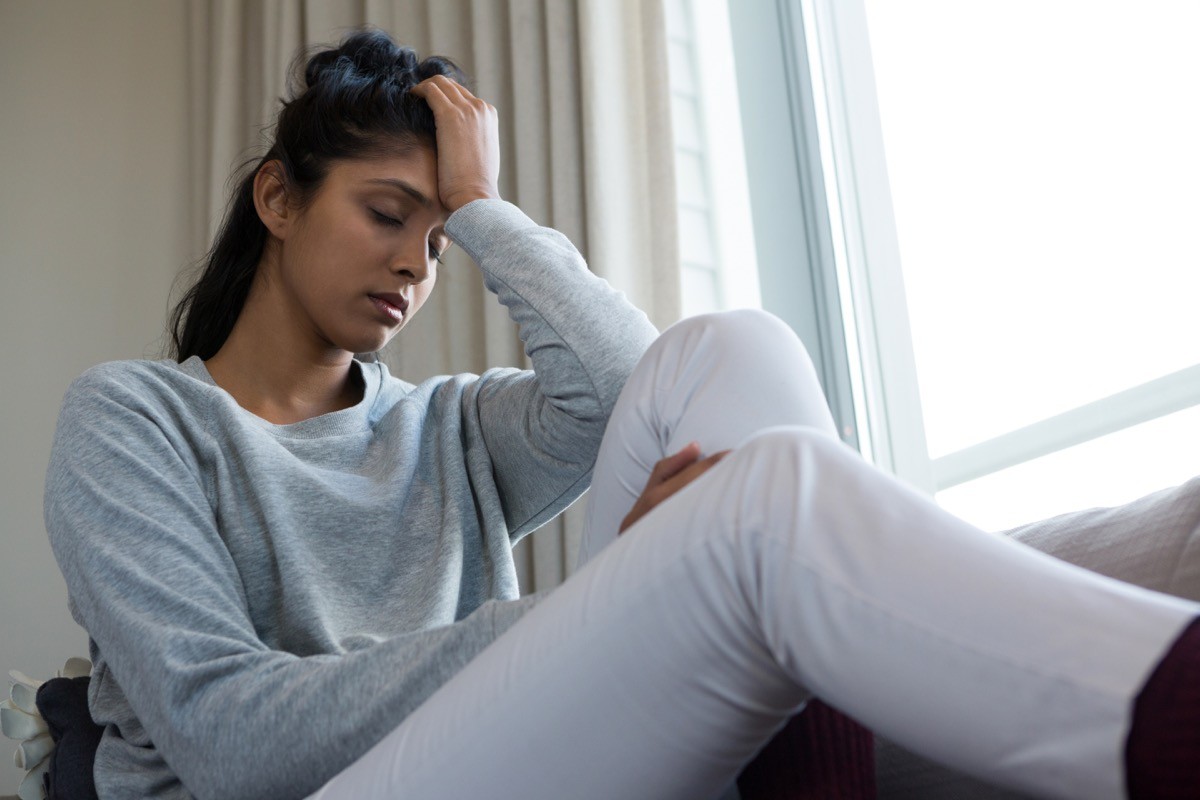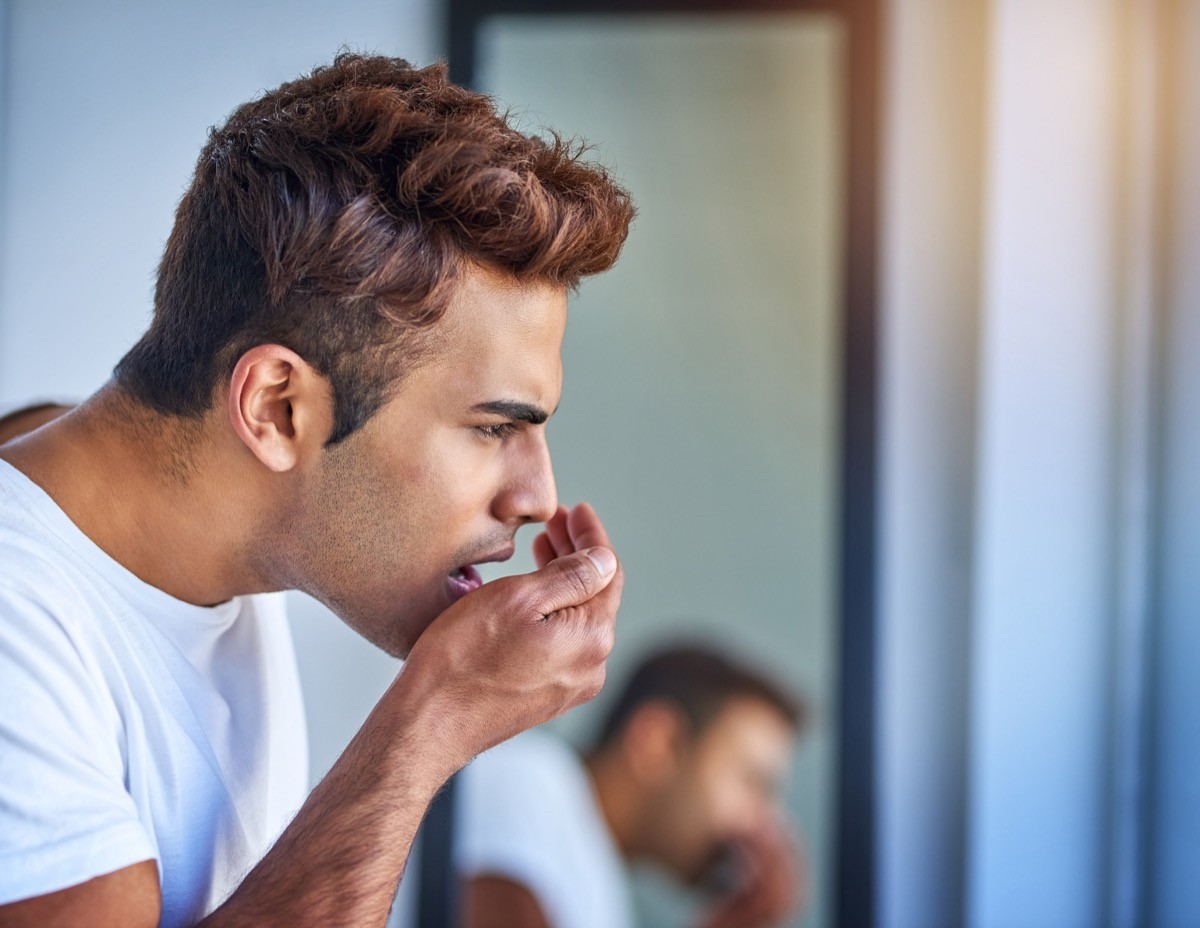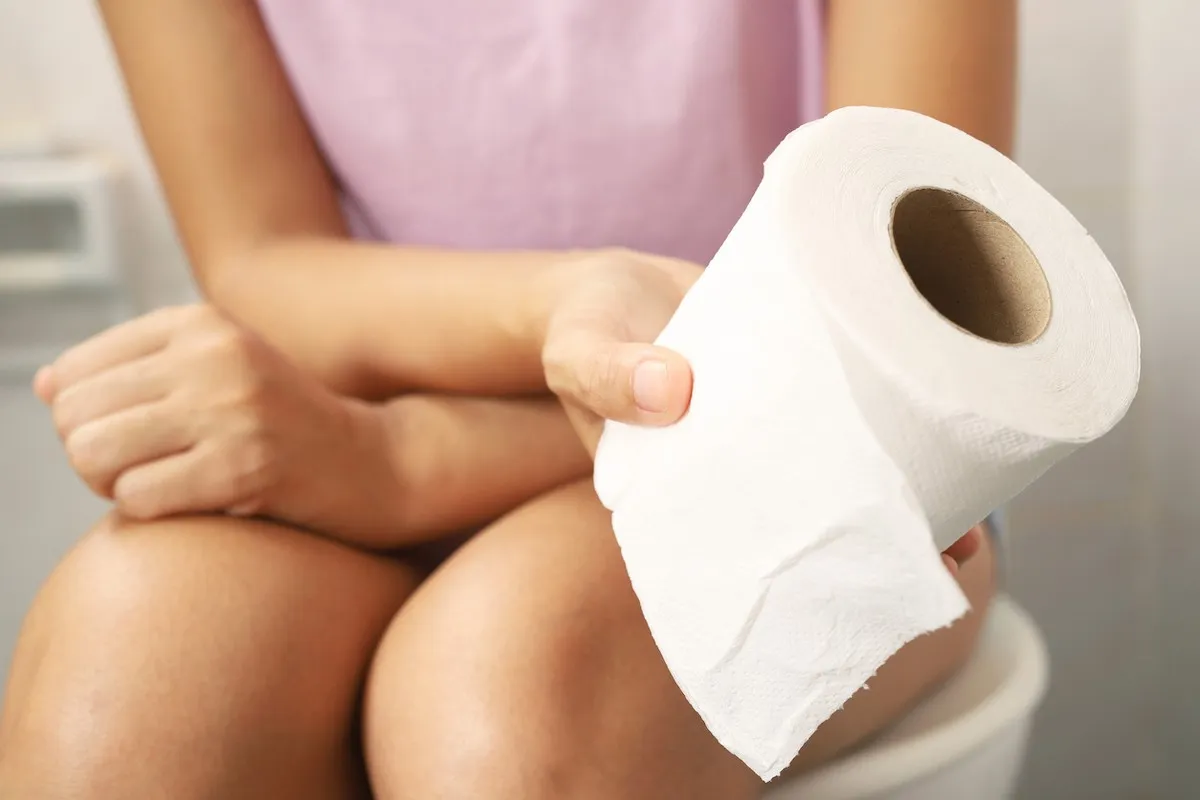10 Dangerous Signs You’re Not Drinking Enough Water, According to Doctors

Hydration is essential to your health. It helps your organs perform their vital functions, regulates your body temperature, lubricates your joints, and helps rid your body of waste, among other things. And with so many important functions hanging in the balance, it doesn’t take long for problems to arise when you’re not drinking enough water.
“Dehydration is when we start trending toward a negative fluid imbalance,” explains Natasha Trentacosta, MD, sports medicine specialist and orthopedic surgeon at Cedars-Sinai Kerlan-Jobe Institute in Los Angeles. “In its most extreme form, we don’t have enough fluid in our body to carry on with the chemical reactions and body functions to sustain life.”
As water leaves the body, salts, minerals, and other electrolytes are left behind in higher concentrations. “This throws off the electrolyte balance in the body, which can be detrimental to the cellular functions of our bodies,” Trentacosta explains.
It’s estimated that 75 percent of Americans suffer from chronic dehydration, and for many, the problem goes undetected until complications arise. To avoid this situation, read on to learn the TK telltale signs that you’re not drinking enough water—and how much you should be drinking.
RELATED: 21 Surprising Signs You Have a Vitamin Deficiency.
1
You’re fatigued, or your mood dips.

It’s easy to overlook some of the early signs of dehydration or to attribute them to the stresses of everyday life. In particular, Trentacosta says that “feeling more tired or on edge” is a common signal that your hydration levels are dipping.
The doctor adds that while anyone may display these symptoms, women may feel the impact of not drinking enough water before men do due to hormonal differences and body composition.
“Women tend to have a lower percentage of water for their body weight compared to men, which essentially translates into women having less water to lose before becoming symptomatic,” she explains.
If you notice a feeling of fatigue, the first thing you should do is drink a tall glass of water, suggests Harvard Health Publishing.
“When you are low on fluids, your body may feel tired and weaker than usual,” their experts write. “Consuming a sufficient amount of fluids in beverages and water-filled food (such as fruits, vegetables, and soup) will help replenish the water your body loses throughout the day and can help you maintain your energy.”
2
You have bad breath.

Does it seem that no matter how often you brush your teeth, swish with mouthwash, or chew gum, your breath doesn’t get fresh? Consider upping your water intake.
“Insufficient water intake can lead to dry mouth, reducing saliva production,” explains James Walker, MD, a clinical doctor and contracted medical advisor for Welzo. “Saliva helps wash away bacteria and food particles in the mouth, so a lack of it can contribute to bad breath.”
RELATED: Drinking This Much Water Every Day Can Help You Lose Weight, New Study Finds.
3
You often feel dizzy or lightheaded.

Another major sign of chronic dehydration is a feeling of dizziness or lightheadedness, says Vernon Williams, MD, sports neurologist, pain management specialist, and founding director of the Center for Sports Neurology and Pain Medicine at Cedars-Sinai Kerlan-Jobe Institute.
“Recall a time in your life when you felt dehydrated. What was the first sign or symptom to present itself? Beyond feeling thirsty, you likely first noticed an initial symptom associated with your head,” he tells Best Life.
Williams explains why the sensation occurs: Without adequate fluids, your blood volume goes down, which in turn lowers your blood pressure and prevents the brain from getting enough blood. This ultimately results in that woozy, disorienting feeling that so many people experience.
4
You get regular headaches.

“Headaches are a very common early sign of dehydration,” Trentacosta says, adding that they’re most common in women.
“When the body loses water, it loses water from the brain as well, causing it to temporarily shrink from the fluid loss. This causes pain as the nerve endings are stretched from the resultant shrinkage,” she tells Best Life.
RELATED: I Tried Liquid I.V. Hydration for Two Weeks & Noticed 4 Changes to My Body.
5
You’re gassy or constipated.

If you’re constipated, you will likely notice that you’re also experiencing more smelly gas. But simply grabbing another glass of water can help nip both these issues in the bud, says Ahmed ElBarkouki, a leader in health preventative measures and the CEO of Echelon Health.
“Hydration and fluids can help you to reduce the risk of developing constipation, which could increase gas and bloating,” ElBarkouki explains. “Drinking four to six cups a day can help to keep you regular, as it helps to soften your stools—which in turn makes them much easier to pass.”
6
Your urine is dark yellow, or you get frequent UTIs.

Your urine can tell you a lot about how hydrated you are.
“The darker the urine, the more concentrated it is,” Trentacosta explains, noting that dark yellow or brown urine is a sign of severe dehydration, as it’s “your body’s attempt to conserve water loss by pulling out water through your kidneys.”
“Having your urine output as clear as possible is a good indication of a well-hydrated body,” she adds.
If you notice a foul smell when you pee, you may have a urinary tract infection (UTI).
While various factors can cause UTIs, “insufficient water intake may increase your risk,” cautions Walker. “Drinking an adequate amount of water helps dilute urine, flush out bacteria, and promote regular urination, reducing the risk of UTIs.”
RELATED: 6 Best Electrolyte Powders to Stay Hydrated, Doctors Say.
7
You’ve experienced changes in memory or cognitive function.

You may also notice changes in your memory or cognitive function—though sometimes these changes are difficult to detect.
“Even slight percentage decreases in brain hydration can result in much more significant percentage decreases in cognition,” notes Williams.
“Consider this: Just a two percent decrease in brain hydration can lead to short-term memory loss. Longer-term dehydration can cause the shrinkage of brain cells. Over time, brain cell shrinkage can accelerate the brain’s aging process and lead to degenerative cognitive conditions such as Alzheimer’s disease and dementia,” he explains.
8
You have body odor.

Dehydration can also lead to body odor, according to Nancy Mitchell, RN, a registered nurse and a contributing writer at Assisted Living.
As she explains, sweat glands release a component called urea, and the bacteria living on your skin transform this urea into ammonia, which can give off a rather pungent smell.
“But drinking sufficient water helps dilute your sweat, so there’s a lower concentration of urea present,” she says. “Ultimately, it reduces the amount of urea available for bacteria to break down, which, in turn, improves your body odor.”
RELATED: 10 Most Hydrating Foods to Eat.
9
You have dry skin.

Staying hydrated “helps your skin to stay moisturized, which means it won’t get too dry or flaky,” notes Linden Leadbetter, MD, a general physician and the head of Tokenomics at JennyCo.
M. Ramin Modabber, MD, an orthopedic surgeon at Cedars-Sinai Kerlan-Jobe Institute, adds that when you’re not drinking enough water, your body works “to maintain water content to vital organs and minimize water loss to ‘less vital’ areas” such as the skin.
10
You’re thirsty.

It may sound obvious, but thirst is the number one sign that you aren’t getting enough water.
In fact, according to Cleveland Clinic, being thirsty or having a dry mouth is not a warning sign that you will soon become dehydrated, as many people believe, but instead a sign that you’re already mildly dehydrated.
Therefore, your goal should be to stay ahead of the sensation by remaining adequately hydrated throughout the day.
According to Mayo Clinic, men require an average of 15.5 cups of fluid per day, while women require an average of 11.5 cups to stay healthy.
“These recommendations cover fluids from water, other beverages and food,” Mayo Clinic adds. “About 20% of daily fluid intake usually comes from food and the rest from drinks.”
However, Modabber points out that it’s important to monitor for signs of over-hydration or dehydration and adjust to meet your own body’s specific needs.